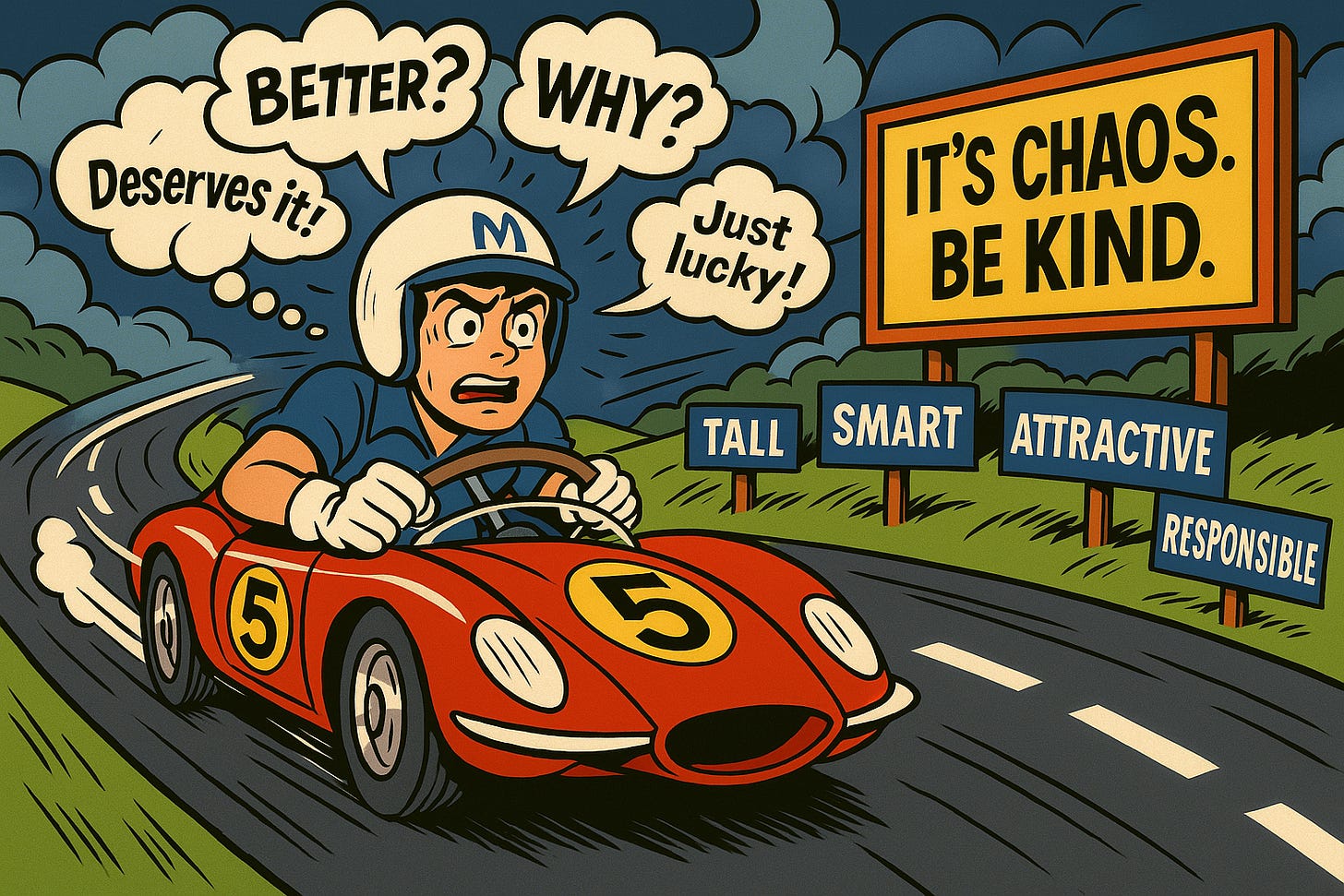Why is better?
and what?
Another bit of philosophy this week. This is another root cause of disagreements in the world, and it is a very fundamental one. In fact, there’s some evidence that it’s at the root of the deepest form of political disagreement: why is something better, and what is better, anyway?
Let’s look at something relatively neutral (though there are really no purely neutral properties when it comes to people, so bear with me): height. It’s clear that humans come in many different heights: that’s a neutral statement of fact about that particular property. But we can quickly get into swampier territory: is one height better than another?
Already, we are on rough ground: we have to define better. And here our old friend dimensional reduction shows up. What’s better mean? Height is great for basketball, terrible for jockeys or sumo wrestlers (I think). It’s great to reach things on top of a shelf, terrible on planes. And so on. Even though height is a simple, clear metric that can be measured accurately, it still has many dimensions (or at least contexts), so reducing it to a single one (“better/worse”) involves some arbitrary choice. In other words, even here, we are already into the land of politics and disagreement.
But let’s say for a second that there is some agreement on which heights are better than others. Now we come to the really hard question: why. And this is where the real divide is: do you assign some “moral valence” to height, or do you see it as an accident? Moral valence means: your “good” (or “bad”) height somehow reflects on you personally: you are a good person if you have a good height, and a bad person if not.
Chance means that, even though you can recognize that there are many factors in the property of height (genetics, childhood nutrition, disease exposure, etc), each of them is fundamentally an accident. Yes, tall parents tend to have tall kids, but that doesn’t impart moral valence on you - you didn’t choose your parents, etc. Were you sick as a kid, so you’re short? Is that just chance, or did you somehow “deserve” the sickness?
We are creatures of the story. It might be the most fundamental part of what makes us human, that we tell each other stories about the world. So, it’s incredibly hard for us to look at something that’s complex (and even something that seems as simple as height is already pretty complex) and not tell ourselves a story about it. Sometimes we tell the stories subconsciously (“look how tall she is, she must be a great leader!”), sometimes not. The other thing that is true of humans is that we like to sort ourselves into tribes. It’s hard for us to not fall into “us vs them” mentality, on all kinds of dimensions.
When you put these two things together, you get the engine that powers much of our unhappiness: we want to tell a story of “better vs worse” almost everywhere, and we want to know why. We struggle with both parts of that: we don’t agree on what better is, and we don’t agree on what it means even when we do agree on that. The result is that we tend to use arbitrary properties to tell stories about each other that assign moral values, often to properties beyond our control.
Does this help? I don’t know. I do it too, without trying. And the question of where chance ends and personal responsibility begins is incredibly hard. Neither end of that spectrum is satisfying, and so, again, we are in a grey middle. But with all of these ideas, the first step to being better is to at least be able to see the pattern and think about it.
In the words of Patton Oswalt: it’s chaos, be kind.

